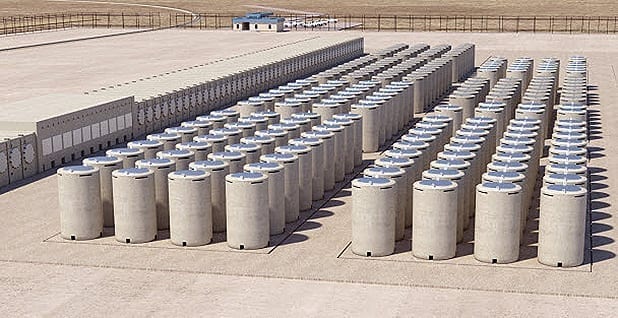
RadWaste Monitor Vol. 16 No. 37
Visit Archives | Return to Issue PDF
Visit Archives | Return to Issue PDF
RadWaste & Materials Monitor
Article 1 of 6
September 28, 2023
Feds could ask for do-over of hearing that sank commercial interim storage

By Oct. 24, the government could ask a federal court to revisit a ruling that essentially killed commercial consolidated interim storage of spent nuclear fuel in the U.S.
The Nuclear Regulatory Commission and the Department of Justice, plaintiffs in a lawsuit filed…
Partner Content